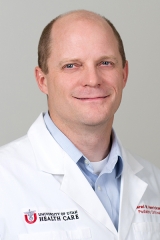About the Book
Surviving Healthcare Training was written for those about to begin healthcare training, those currently in training, or anyone who is already in the healthcare workforce. It’s near impossible to name all the occupations that affect our health. Nurses, physicians, surgeons, nurse practitioners (NP’s), physician assistants (PA’s), respiratory therapists (RT’s), pharmacists, therapists (physical/occupational and speech), dieticians, social workers, counselors, Emergency Medical Technicians (EMT’s), medical assistants, unit technicians, administrative assistants, clerks, engineering, security, administrators, parent/family advocates, and so many others work in hospitals, emergency departments, long-term care facilities, home health environments and clinics to provide for the physical and mental health maintenance of us all. Such training is full of discovery, learning and heartache. This book aims to share some lessons learned to help you thrive in your healthcare career.
This book aims to give you some advance knowledge as you move into the noble field of healthcare.
“There is so much to learn! Despite the simplicity of the concept of going from novice to expert, so much of healthcare is now specialized, interdependent and more complex than any human can possibly process and remember.” – Introduction
Buy The Book
Writing is still in progress.
About the Author

Jared W.Henricksen is a Utah native who earned his medical degree from the Medical College of Wisconsin and completed his Pediatric Residency at the University of Arizona in Tucson. He specialized in Pediatric Critical Care Medicine through a Fellowship at the University of Tennessee Health Science Center in Memphis. Additionally, he holds a master’s degree in Health Profession’s Education from the MGH Institute of Health Professions in Boston. He serves as a Professor in the Department of Pediatrics’ Division of Critical Care in the University of Utah Health system and concurrently as the Intermountain Health Simulation Consortium Medical Director. His interests include demonstrating the value of simulation in healthcare to promote patient safety, and nurturing a culture of high reliability and psychological safety within hospital settings.
